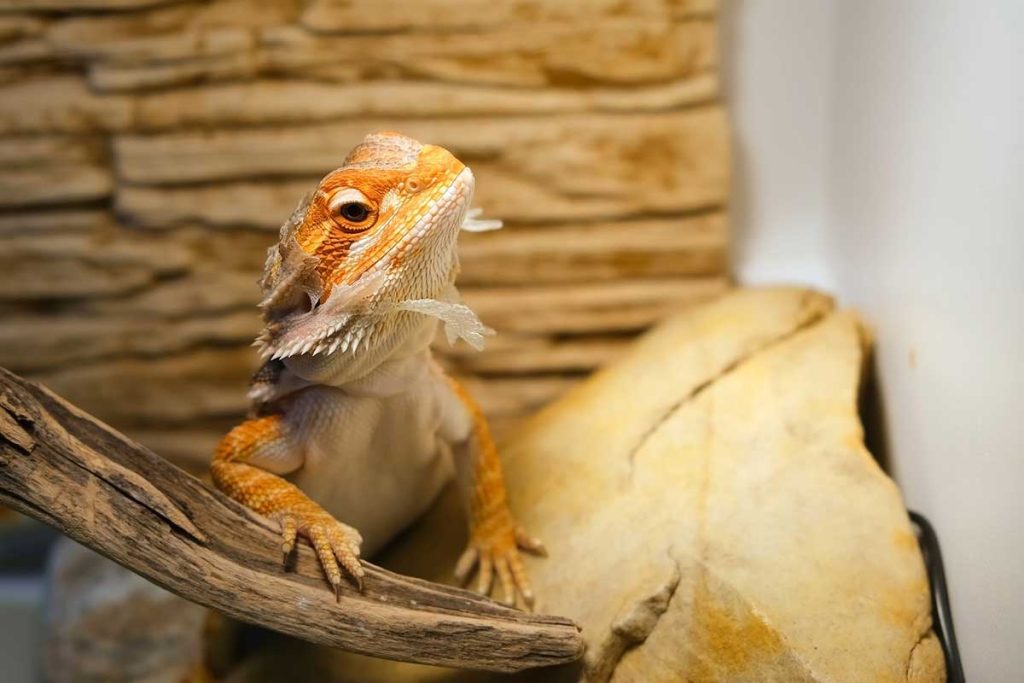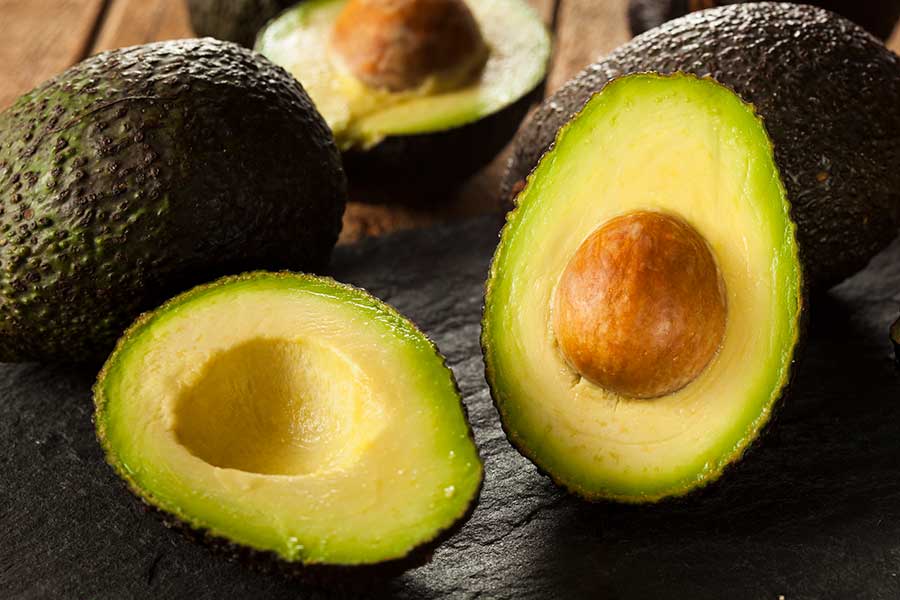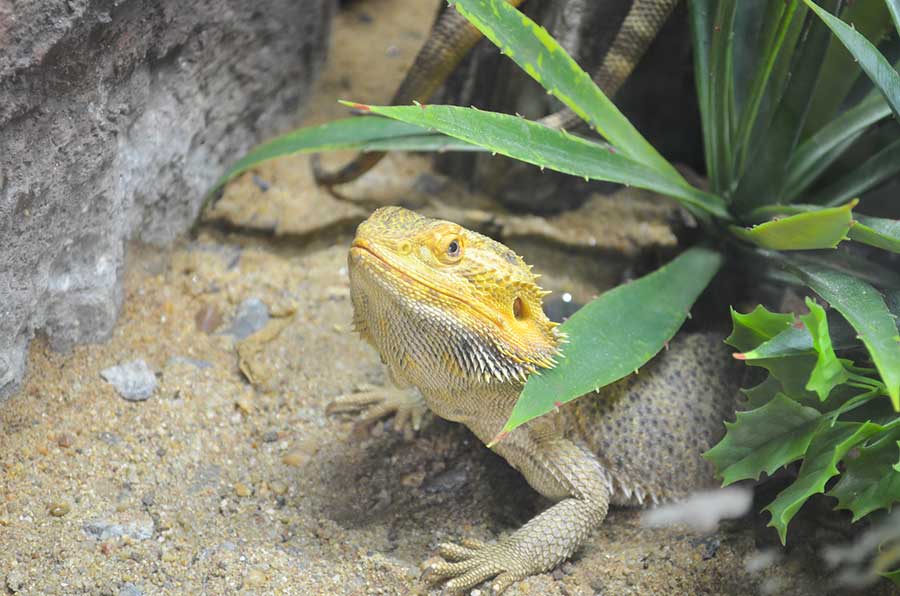Just like humans, bearded dragons are omnivores, and they need a healthy and varied diet full of naturally nutritious foods in order to thrive. With that in mind, you might be tempted to just give them the same healthy foods that you enjoy, which may include the superfood avocado.
But can bearded dragons eat avocados? It turns out, the answer is an unequivocal no!
Not only does this fruit contain very little nutritional value for lizards, but it is actually toxic to most animals, including bearded dragons. Eating even a small slice of avocado could result in their death within a few hours.
It is important to remember your bearded dragon’s nutritional needs are very different from your own and to research foods that are safe and nutritious to help them thrive. That is why, in this article, we will explain exactly why you should never give your beardie avocado. We’ll also suggest some healthy fruit and veg alternatives for filling their bowl.
Why Avocados Are Toxic to Bearded Dragons
Avocados contain an element called persin. Persin is a fungicide, meaning it kills fungi, and it’s also toxic to many animals. Exactly how toxic it is depends on the animal that consumes it. It is toxic to dogs, cows, horses, and birds, but it is virtually harmless to humans in small amounts. Lizards, including bearded dragons, sit closer to the bird end of the scale.
Persin is actually only concentrated in the skin and seed of the avocado, but it is present in such great quantities that it also seeps into the meat of the fruit. This is why you should also avoid eating the skin and seed of the avocado, although you will probably only end up with an upset stomach if you did happen to accidentally consume some avocado skin or a portion of the seed.
The consequences for your beardie of eating any avocado are much more serious; ingesting it can even be fatal for them.
If your beardie ingests avocado, their body will do everything it can to expel the toxins. This usually means bouts of vomiting and diarrhea. Vomiting and diarrhea alone can be a major health concern for your beardie, as they can quickly become dehydrated, but it’s still better for them to get the toxic persin out of their body however they can.
If they don’t manage to expel the persin, it can start to affect their respiratory system. You will notice that they are having trouble breathing. If they only have a small amount of persin in their system, this can pass quickly. However, if they have quite a bit of it circulating in their bodies, it can lead to death within a few hours of ingestion.
What to Do If Your Beardie Eats Avocado
That all sounds pretty scary, so what exactly should you do if your beardie accidentally ingests some avocado?
Of course, you’ll first need to contact your vet immediately to get personalized care for your specific situation. Make sure you monitor your beardie carefully, especially their breathing, so you can let your vet know exactly what their symptoms are.
Aside from this, you can try and help them expel the toxins from their bodies. You can do this by giving them a warm bath, which should encourage them to pass the avocado through their digestive system. You can also give them water through a food syringe to help flush their system as well.
Nutritional Value of Avocado for Bearded Dragons
As well as carrying a poison that could kill your lizard, avocados don’t offer much nutritional value for beardies. This is another reason why the risk is not worth it!
First of all, avocados are high in fat, with fat actually making up 77% of its total calories. While that is fine for you, especially if you are on the Keto diet, it can seriously upset and damage your beardie’s digestive system.
Eating fatty foods can also be a contributing factor in your beardie developing obesity, which is a common problem for lizards raised in captivity. Obesity can lead to liver disease and heart failure.
Avocados also contain a lot of oxalic acid (also known as oxalates). This is bad for beardies because it binds to
What Your Bearded Dragon Can Eat Instead of Avocado
As a responsible pet owner, you still want to fill your beardie’s bowl with lots of healthy fruits. What, then, should you be giving them instead of avocado?
Fortunately, there are lots of fruits that beardies can eat–in moderation, of course. However, it is generally a good idea to steer clear of anything that contains especially high levels of oxalates, since they can strip your beardie of
To be clear, almost all fruits contain oxalic acid, but the exact amount in them can vary significantly. For example, it’s a good idea to avoid kiwis, raspberries, and starfruit altogether due to their particularly high oxalic acid content.
Highly acidic fruits, such as oranges, lemons, limes, grapefruits, pineapples, tangerines, and tomatoes are also best avoided, as the acid will seriously upset their digestive tract.
So, what does that leave? Lots of delicious fruits!
Here are some of the most delicious and nutritious fruits you should be feeding your bearded dragon:
- Apples
- Watermelon
- Papaya
- Strawberries
- Blueberries
- Grapes
- Figs
- Dates
- Peaches
- Apricots
- Plums
- Pears
As a rule of thumb, make sure you are always giving your bearded dragon fresh fruits, not dried. Dried fruits concentrate the sugars and can be too intense for your beardie.
Finally, remember that fruit should only make up 5% to 10% of your bearded dragon’s diet. While fruit is tasty and fairly nutritious, its high sugar and oxalate content makes almost all varieties inappropriate as staple foods.
You can learn more about what to feed your beardie with our bearded dragon diet 101 guide.
FAQs About Bearded Dragon Diets
What happens when a bearded dragon eats avocado?
Avocado is toxic to bearded dragons. If your dragon eats it, their body will do everything it can to eject it from their system. You can expect vomiting and diarrhea.
If they don’t manage to expel the toxin quickly enough, it can start to affect their respiratory system, and they may have trouble breathing. If this persists, it can result in their death within a few hours.
If your bearded dragon eats any avocado, contact your exotic animal veterinarian immediately.
What fruits and vegetables can bearded dragons eat?
Omnivorous bearded dragons can eat and enjoy a wide range of fruits and vegetables.
The most nutritious fruits for them are apples and berries, especially strawberries and blueberries, as well as peaches and watermelon.
When it comes to veggies, they can have cabbage, collard greens, bell peppers, carrots, pumpkin, and sweet potatoes, among many others.
What fruits and vegetables can’t bearded dragons eat?
Avocados aren’t the only thing that you should avoid putting in your beardie’s salad bowl.
Onions and chives, mushrooms, leeks, garlic, rhubarb, eggplant, and iceberg lettuce should all be avoided either due to having poor nutritional content or being outright toxic to bearded dragons. It is important to research foods before including them in your lizard’s bowl for the first time.
What foods can bearded dragons not eat?
There are plenty of foods that omnivorous humans consider staples that should never be given to bearded dragons, despite the fact that they are omnivores as well. This includes onions, chives, celery, mushrooms, citrus fruits, iceberg lettuce, avocado, and much more.
Always research new foods before adding them to your beardie’s diet.
Can beardies eat eggs?
Bearded dragons can eat eggs as a source of protein, though it should be used as a backup or supplemental source and not to replace insects as their main source of protein.
The eggs should always be cooked completely. Never give them raw eggs, and don’t use seasonings when preparing. Give your beardie no more than half an egg per feeding to ensure proper digestion.
What should a bearded dragon eat daily?
Bearded dragons should be eating a mix of animal-based proteins, mostly insects, and plant matter that is high in
Baby bearded dragons should eat mostly insects compared to plant matter. However, they will start to lean more towards plant matter as they grow older.
Baby beardies need more insect protein to support their rapidly growing bodies, while adults need more
Can bearded dragons eat cheese?
No! Notably, bearded dragons are lactose intolerant, which means they can’t digest cheese or any dairy products. Giving your beardie a slice of cheese can make them seriously ill.
The Verdict
While avocados are a healthy food for you to eat, they are something you should never give your bearded dragon, ever!
Avocado contains a fungicide known as persin that is toxic to lizards, and even a small amount can do serious damage to their bodies. In particular, it can cause severe respiratory failure and even death. If your beardie does manage to fight off the toxin, they will likely experience a lot of vomiting and diarrhea to get everything thoroughly out of their system.
What’s more, avocados don’t provide any significant nutritional value to your beardie, so these unique fruits are never worth the risk. If they do accidentally ingest avocado, call your vet and do your best to flush the avocado out of their system as quickly as possible.
Of course, there are still plenty of tasty fruits that you can give your beardie instead, including apples, papaya, strawberries, grapes, and many more.
What fruits do you like to give your bearded dragon? Share your ideas with the community in the comments section below.




